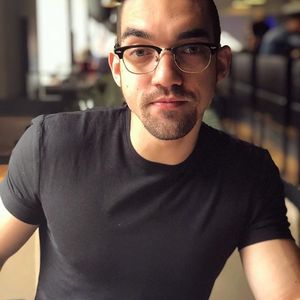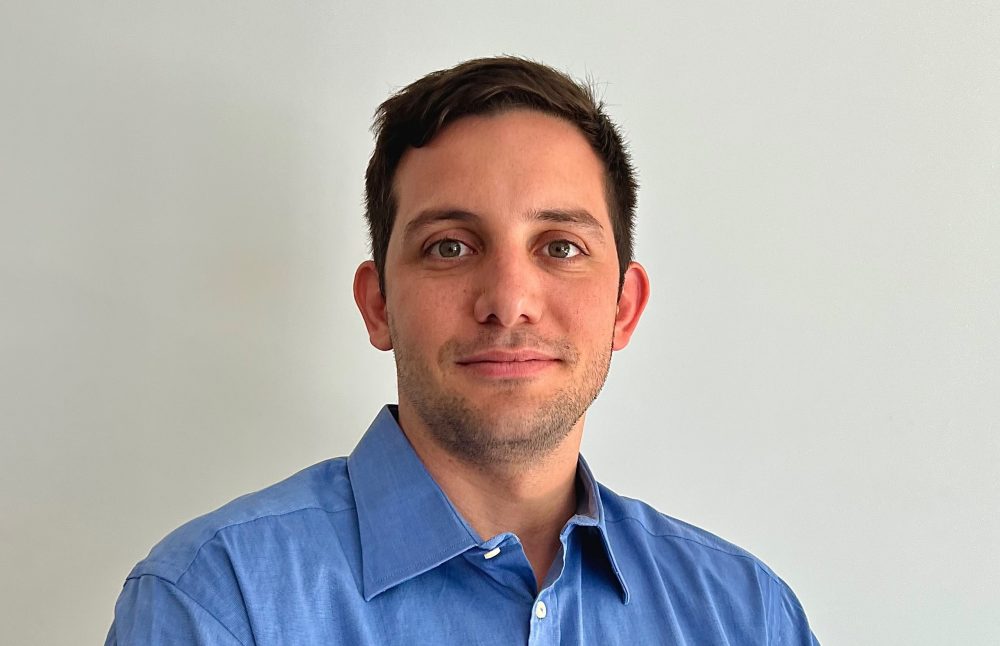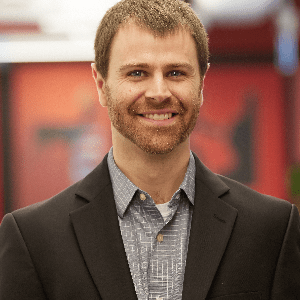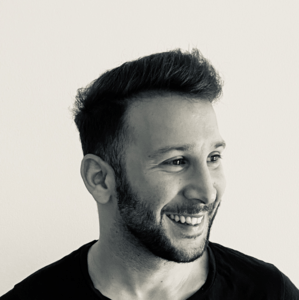They call him Positive John for a reason, so much energy and enthusiasm and full of super helpful advice”. I worked in the dynamic environment of growth agencies and fast-growing product startups. The marketing journey started with analytics and applied statistics for conversions and grew up to Growth Experiments, my field of expertise.
Growth, experiments, and startups with Hannah Parvaz
Listen on:
What we talked about:
- What Hannah generally talks about during GrowthMentor calls
- How the iOS 14 update affected Facebook Ads performance at Curio
- How COVID affected product usage of the Curio app
- If Hannah could choose one KPI to optimize for in the app ecosystem
- The Big App Stores: What they could probably improve upon
- The new cool startup that Hannah's getting involved in!
Transcript
Welcome to the growth mentor podcast where we talk about, let’s be honest, nobody likes those long intros. Let’s just get right into it.
Positive John: How’s it going, everyone? I’m your host Positive John. This is yet another episode of our growth chat. And today we have Hannah Parvaz. Hannah, it’s great to have you with us today. Before we get to know you a little bit better, let’s start with a nice break. We’re testing a couple things from best self here. Hannah, if you could never work again? How would you spend your time? Tell us a little bit more about that?
Hannah Parvaz: Yeah, so I mean, I’ve always thought if you, if you do too much of your, if you do too much of your hobby, it dilutes the passion. But I found myself at the moment in a lot of click holes, looking at animals that have been rescued. So maybe I’d like to open a rescue center or, or a sanctuary for animals, you know, helping helping pigs come over PTSD or not. That’s funny, you know, but I just think that that mission driven, mission driven? Yeah. I, that’s something that’s really close to my heart. You know, where would I do that? Probably not in London, which is where I am now. But I’ve seen a bunch of things that have been in Spain, so maybe that would be a good place.
Positive John: Okay, it’s good for us to understand a little bit more from this personal side of you. Okay, things that are close to your heart. So let’s start and getting to know you a little bit more. So Hannah, tell us how are you generally helping people from the growth mentor community, feel free to maybe paint a picture with the previous session that you loved if it makes easier for you?
Hannah Parvaz: Of course, I mean, I’ve loved all my sessions. So I’ve spoken to about 150 160 companies on growth mentor now. And usually we’ll cover one of three different routes. So one about implementation. So technical setup of their tech stack. So how does their analytics, platform integrate? and so on? What are they tracking? To, like tactical best practices? So for different platforms, like Facebook ads, Google ads, and so on? What do those look like? How are we setting up the ads? What are the what what do the ads contain, and so on, and then three, mindset coaching. So focusing on you know, zooming out, and starting again, from the basics. So how do we talk to customers? How are we analyzing what they’re telling us. And so looking back over the my last couple of sessions, though, I had one this morning, I had a couple yesterday, and there’s generally been quite a big focus on products lately. So how to validate your ideas, how to get new ideas, so whenever we’re talking about how to get new ideas, I always say, you know, talk to your customers, because they’re your they’re your biggest resource. And, you know, generally how to look at the growth process holistically, and build in building what the key stakeholders once and and what they need, because, you know, growth is a team sport, and everyone should be collaborating.
Positive John: Yeah, I love this idea of growth is a team sport. This goes along with the mindset, coaching, if you will. But I also want to echo this idea of talk to your customers and the product focus I’ve been having from my previous sessions, something very along those lines. I usually like to see a little bit of the last reviews that we have in the platform. Social Proof here helps us to paint a more complete and colorful picture. So we have here within 30 minutes, she helped me figure out a way to manage ads on Facebook, and Google guided me through setting and setting up an actionable dashboard. I’m assuming some Google Data Studio magic there, talked through different ad strategies, and so much more, we’ll definitely have more sessions with her for more advanced ad strategies soon. So this goes along with the second topic that you mentioned. So setting up ads, understanding the tactical but also the strategic perspective, anything you want to comment on that.
Hannah Parvaz: I just I remember having that session, it was just such a it’s such a good one. And you know, I love I love coming out of the sessions and you know, sending over the notes and work and then you know, touching base with people later on to see their progress. So yeah, I’m really excited to follow up with such work on on that and and see where he goes. That was that was a great session.
Positive John: That’s awesome. Time for us to get a little bit into the specifics. And I want to start this with my big challenge question. So you’ve been working at Curio. So in at Curio, I wanted to understand what was the most difficult challenge you went through during the last two quarters. Let’s start to be a little bit more specific timewise. You know, 2020, I feel has been crazy to everyone. But let’s focus on the two previous quarters. How did you move processes and nudged people to get things done? Give us a good just so we start on a high note there.
Hannah Parvaz: Yeah, so I mean, over the last two quarters, gosh, I mean, we’ve, I’ve been at Curio for just under three years now. So we fortunately managed to iron out a lot of what our teething problems are in communication and things like that. But I mean, over the last two quarters, I would have to say that we were having our biggest challenge around acquisition through Facebook. So we’ve been trying out a lot of different things, you know, the strategies that we were using just 10 started to plateau, or revenue was like starting to plateau around November. And so, you know, you have to think about what’s happening in the world at that time, you know, when we’re thinking about Facebook ads, you’re competing against Black Friday, you’re competing against the elections happening in the US, you’re competing against the beginning of Christmas traffic. So you really need to do something special there to be able to kind of overcome that. So, you know, we spent a lot of time internally talking about new creative strategies. We don’t, we launched a bunch of campaigns targeting our users offering different sales. So that was kind of cross functional implementation there, because we had to get all of our whole webs, flow set up for gifting and so on. So that was brilliant. And then what’s more, we internally decided to start testing with a new offering from Facebook, to use their automated app campaigns, which really revolutionized our last couple of months for us. So yeah, I mean, we just overcame that by, you know, lots of communication, lots of kind of war room meetings and making sure that everyone was aligned. And and focusing on the same goal, which was get more users in and get more subscriptions happening by generating, you know, enough quality.
Positive John: Yeah, growth is a team sport. Once again, I want to follow up on that maybe drill, drill a little bit more, would just say that Curio and everything that you’ve been seeing on Facebook, so Curio was one of the companies affected by all those changes with iOS 14 changes in Facebook cookies, would you say this was something that hurt the company and the way you guys had to, you know, maybe people have some strategies, I had a couple growth mentor calls around that problematic and very specific to Facebook, the changes on the algorithm algorithm getting lost? Anything that you can comment on that?
Hannah Parvaz: Yeah, well, I would say that, you know, all companies are going to be affected by that iOS 14 idfa changes. So it wouldn’t just be Curio. But I mean, our biggest things were obviously that we have to submit to the SK ad network. So having, you know, a pop up in the app, saying that we want that we’re wanting to track customers across different platforms, and so on, which, you know, has to be native across all apps now in the App Store. So that’s obviously one challenge. Another is just getting used to the attribution windows that we’re seeing in, in Facebook ads. So with iOS 14 idfa removal. The standard attribution window is a seven day click now. So you know, normally Facebook was seeing a 28 day click or one day view, but you know, you have to change everything now to seven days. So your numbers are going to look a bit more expensive, and so on. So it’s just making sure that everyone’s getting their heads around that and being aligned on that too. Because if we’re trying to compare 28 day conversion windows with seven day conversion windows, obviously, they’re going to be a little bit different. Yeah,
Positive John: yeah, your numbers will look a little bit more expensive just echoing that because it has been a common tone in those calls that I had around Facebook ads as well. So I don’t know let’s let’s move a little bit the conversation because I’m very curious about the fact that in 2019, you will want the market here of the of the year. That’s pretty awesome. while delivering some awesomeness at Curio, so fun fact, you know want to play that we hold some similar badges here recently, to calm the best growth can think of 2020 from wrench.m.io. That’s a completely different story. I’m pretty sure there’s more than enough material available online, in different formats, explaining a bit more from the technical point of view that answers like how your team got to that milestone. What I’m really curious about and the message I feel like we can amplify and get more mentees are people listening watching to us to be aware of is that you being the second hire at Curio, employee number two, you must have a very clear understanding of the vision of your CEO of why the app as a platform is crucial or important for the company’s growth. So that said, I feel like my question here in short is, why the app.
Hannah Parvaz: So we also have a web app, first of all, so you can actually visit play.curio.io and access everything that we have on our website. And actually, we’re building out our website more and more. But when we launched, you know, which was in the pre COVID era, we wanted to be something that was mobile, and that people could listen to anywhere, anytime. So you know, we were having a really big market in the kind of commuting time of day, and, and, like, whenever we spoke to people that were saying, you know, I like to use Curio when I’m walking the dog, or when I’m out shopping, or I’m doing this or I’m heading to work, or I’m driving my car, and so on. So now with COVID. And we’re in this post, world, current pandemic, pandemic world where, you know, the UK is still in a lockdown, those things are changing. And actually, whenever we went into lockdown, we sold the number of people who were using carrier reduced slightly, but what we noticed was that the people who were still using Curio increased so dramatically, like that, the amount that they were listening, that then that has snowballed into just huge increases in the numbers of people. Because you know, the more you use a product, the more you’re likely to talk about it. So when we spoken to people, you know, they’re saying, Oh, well, now I, I listen, while I’m washing the dishes, or while I’m doing the housework, or, you know, while I’m exercising and things like that. So although our use case has moved slightly from you know, commuting to doing things at home, it’s still pretty similar, like fulfilling, feeling fulfilled in a in a time where you’re still trying to be slightly mobile, you know, if you’re doing housework, you kind of want to have your headphones and your phone on you probably. But, you know, as I say, we are working on our web offering, but we’re going to be maintaining our mobile first. You know, that’s where that’s where we’re specialists. And that’s, that’s where we’ve put a lot of our efforts on making just a really beautiful app, that was a pleasure to use.
Positive John: Okay, so let me just rephrase. And the way I’m translating this to my mind. So during this pandemic times, Curio saw an increase in engagement of the current user base, which lead to potentially a word of mouth increased coefficient, K, if you’re listening more, you’re more likely to write suggest the app to friends. But overall, Curio saw a slight decrease on the total users passing by the app or the domain. And this was one of the idea of developing more the web app version of Curio. So it’s a very, please continue.
Hannah Parvaz: I was gonna say, so there was a decrease at the beginning. But then, as you say, the word of mouth coefficient increase, and then actually led to substantial growth. So yeah, it was just brilliant.
Positive John: Yeah, I like to correlate this with what I see in brainly. And again, brainly, the education technology platform, rubber, around 350 million monthly active users right now, started mostly on the web app, and started, you know, trying to translate more and more to the app. So you can have this idea of access from homework help from your fingertips. It’s nice to see Curio going the opposite direction, adapting to the current world that okay, that as you mentioned, the use case was more outdoor. The use case is more indoor, just because the environment, right. I want to reach a little bit of the personal level with my next question. I have a great friend of mine, Matt working in feature big agency in Berlin regarding app ecosystems. In his also, his always so excited about explaining how the app ecosystem is different is a different universe that place under slightly different rules of what we have under on the web. I worked with some businesses that invested in their app to diversify the risks regarding the search engine black boxes, for example. Now, I want to understand from you from your point of view, what do you like the most about working in this, you know, somehow unique and different app ecosystem? One way I like to put this question maybe through to help you there. If you could choose if you could choose one and only KPI to optimize for Ever in the app ecosystem, which KPI would that be? and explaining a little bit the why.
Hannah Parvaz: Yeah, I mean, I think it’s really hard to say the one KPI in the whole ecosystem, because every product is so different. And I think I love the KPI that’s closest to the end user success metric. So for Curio, that’s stories listened to, you know, how many how, how active they are. Other companies I’ve worked, maybe that’s tickets booked or sessions in the app itself, you know, and it’s also, you know, I just in general love digital products, so people can be so passionate about them. And the thing I love the most is about working with developers to validate ideas and bring features to life that customers were looking for. So
Positive John: Okay, back to the KPI idea. So stories, listen, this is a very like retention metric that tells a lot of what usage and how users are successful using the product, right. following up with my magic, when question. So if you had a magic wand, what would you have changed on the big app stores?
Hannah Parvaz: What would I have changed on the app stores?
Positive John: Anything that bothers you in that side of the ecosystem today?
Hannah Parvaz: Yeah, I mean, I think that for different products, different things are important. So what what I would change for Mike, the companies I work in is just having one permanently feature Dino. But if I, for something a bit more realistic, having the flexibility to change or kind of AppStore data. So you’re listing data, so the screenshots retitle without having a submission. At the moment, every submission, you may come to the App Store require. Every every time you want to change anything that requires a different, totally new submission. It’s not, it’s the same within like store, but you don’t need to attach a brand new version of of the app to that then so little bit easier on the Play Store, but quite difficult on the App Store, if you want to make some quick changes.
Positive John: Yeah, following on the idea of quick changes, I would love to see the big app stores having some more flexible API’s for AV testing. Today, we see a couple of things on the Google Play Store, which is not the easiest, but it’s what’s possible. On the on the Apple Store side of things, it’s a lot more complicated. And so testing creatives, testing the headlines testing the right the copy the keywords that we play on the on stores, it’s a lot more restrictive, a lot harder, it’s a really prove value of when it comes to ASO right App Store optimization. Yeah, that’s that’s my pain point with the app stores today,
Hannah Parvaz: we’re fortunate that with the App Store itself, you can run App Store search ads with different creatives app testing. So that’s pretty, that’s pretty good that they’ve, they’ve built that out. But again, people respond differently to ads than they do, to landing on your to your landing page. organically or, or to or landing on your AppStore product page from an external app. So from a Facebook ad or a Google ad, for example, then they then they would from a search ad within the app store. But you know, maybe one day we’ll be able to do organic testing without a third party.
Positive John: I’m going to be curious here now because I like how you position this idea, you know, people coming from Apple Store ads, or you know, UAC, they behave a lot different from users stumbling upon your ad, your app organically. Do you run any specific analysis to differentiate those things understand, like, Okay, how people that come from this kind of source and face my app in the store, downstream events, or what exactly usually, like the conversations that you have, with the team with the developers?
Hannah Parvaz: Exactly. So I mean, depending on the source that someone’s coming from, and and how they’re performing in the app afterwards. So whether they’re listening, whether they’re subscribing and so on, that informs why we’re going to, to spend the majority of our effort whether that’s time or or money. So, you know, we’re always looking at if someone converts better from search if someone converts better from Facebook, and at the moment, we’re seeing that our best results are coming through from Facebook ads. So that’s where we spend most of our time and resource currently. So they’re, they’re converting better even than organic at the moment just because of the level of optimizations that we’ve done. So now the task is you know, how do we feed our Facebook learnings into our app store to make sure that That processes, you know, you’ve ambassador. But, you know, whenever we’re not the apple feature, we’re very lucky. But we’re an app that Apple features quite regularly. So that means, you know, we get a lot of impressions from that we got a lot product page views. But you know, at the same time, when you’ve got such a high density of impressions and product pageviews, sometimes it’s just lower quality traffic overall, coming through, maybe a super targeted Facebook ad. So
Positive John: interesting mentioning that you see the best performance coming from Facebook today, from my experience, I’ve run a lot of web to App projects of, you know, using the huge following that we have in bring me to bring more people to use the uniqueness of the value delivered by the app. And I constantly see more retention and engagement from users acquired from the web towards the app, instead of the ones that just come organically through the stores. So interesting correlation there. 100, we need to start wrapping up soon. Let’s close this talking a little bit about the future. Share with us one exciting project you’re currently involved with.
Hannah Parvaz: Yes. So internally to Curio, I’m very excited that we’re expanding out our performance portfolio, like very quickly at the moment. So we’ve actually on boarded an agency who are going to be helping us with our app store search shots, more than ever, that’s becoming very important, especially as, as we spoke about with the idfa changes, because Apple are able to own their own data. And then externally, I work with a bunch of different companies and projects. So I’m really excited to start working on a new startup with who we’re putting on live electronic shows, but that you can stream and be a part of them. So that’s really cool.
Positive John: Live electronic music shows, anything you want to do?
Hannah Parvaz: Yeah, you can watch DJs live and then with your camera on, you can be a part of the show, which is a really cool thing.
Positive John: Okay, I have been seeing some even movements on AR in that direction being present in the show not being in the show. That’s very nice. One thing that you’re trying to learn, you know, currently trying to or already learning could be related with those exciting projects, but not necessarily.
Hannah Parvaz: Yeah, I mean, I’m always trying to to learn. I’m currently more and more interested in psychology as a whole and user psychology, because that’s really what kind of marketing and growth is. So I’m looking for some more good courses on that. But I’ve been like reading a bit and doing some kind of free online courses to get give me a base level. And at the moment, I’m mostly actually using a lot of growth mentor and learning about product validation more than ever, and about learning, you know, to start your own business very lightly to see what happens though.
Positive John: Okay, so in between psychology and starting your own business, if I can suggest there’s this new cohort in Reforge. Regarding user insights, there’s going to be led by ex slack and ex Facebook, product designers and user UX researchers might be interested on that one.
Hannah Parvaz: Yeah. forge courses are brilliant. I did the advanced growth strategies one a couple of years ago. And that was fantastic. So yes, those those guys are just tremendous.
Positive John: super nice. super nice. Apart from growth mentor, how can people reach reach you out?
Hannah Parvaz: Oh, yeah, I mean, I’d love to hear from anyone who’s, who’s been listening. You can find me on LinkedIn just by searching my name. Or you can find I made a website. So you can find my website just by typing my name into Google as well. So that’s Hannah Parvaz.
Positive John: That’s perfect. We’ll make sure to include all of those in the show notes. And that’s it. Today we have, we got to know Hannah Parvaz a little bit better. Make sure to reach out connect, be social. If you feel it couldn’t get a little bit more value from discussing with her specific business challenges. Don’t fight those battles alone, grow with a mentor and be part of this big brain community. That’s it for today Hannah, thank you for being with us.
Hannah Parvaz: Thank you so much for having me. It was really amazing to talk to you.
Positive John: The next time.
In this episode


App Marketer of the Year I grow apps (and other companies) by building brands, community, and making products that people want to use.
Join the community
Enjoy the peace of mind that advice is always only one Zoom call away.



